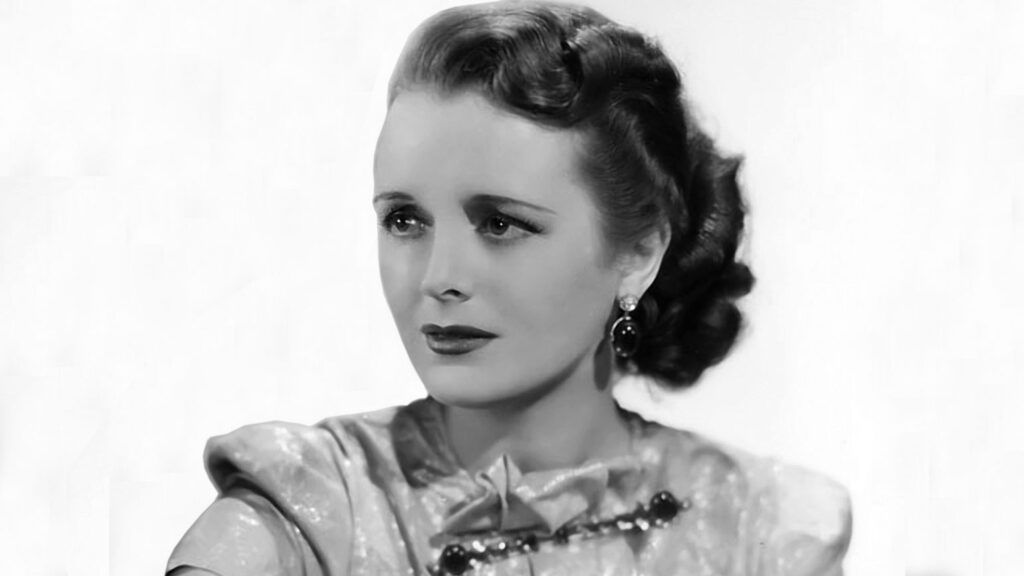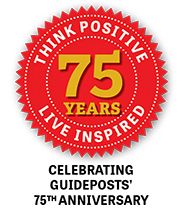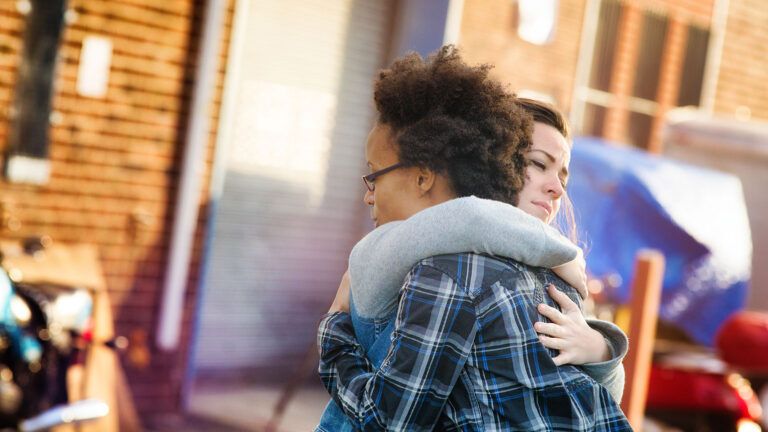The most glorious experience of my life was finding Faith. That was almost 20 years ago. But the greatest triumph of my life was discovering that Faith all over again, after I thought I had lost it. This is the story I want to tell here—the story of what you might call “a backslider.”
By the late 1930’s I had been in the movies for almost 20 years. I knew what it was like to live the “glamourous” life of a Hollywood actress, to be married three times, and to have two children.
I knew too the inner deadness that comes from a life lived without purpose other than self-pleasure and indulgence. For years I yearned for contentment, for the security of someone to lean on and take care of me. Then, I found a Faith and a Father.
He came into my life slowly, without my suspecting that He was coming. Idle curiosity had set me reading books on religion and as I became increasingly interested in the subject, I started asking questions, all very objectively, never thinking that I myself would become involved.
READ MORE: SHIRLEY TEMPLE’S HAPPIEST MOMENT
And then, one morning, in one blinding moment of illumination, I discovered that I had within me the Gift of Faith. A sentence in a book I was reading suddenly transfixed me. It was a sentence that I had heard and read countless times but whose meaning I had not perceived before in all its ramifications: “Jesus Christ was God.”
That moment, of course, was the culmination of many months of study, but nonetheless, those four words were a revelation which made me slip to my knees in prayer. They were a key that seemed to unlock the great mysteries, to make everything in my world fall into place. If Christ were God, and lived on this earth, then anything could happen. Even my tangled life could be untangled.
From that start, I studied and prayed and, with deep love, turned myself over to Christ.
For a year I lived on a pink cloud. I luxuriated in the warmth of having a loving Father, one who would protect me. Not only was I happy within, but the world outside contributed handsomely; my home functioned well, my children were eager with affection, my career was in high gear with good pictures and a popular radio show of my own.
In another year, however, the pink cloud had turned to gray and each succeeding year it grew blacker. A divorce; a remarriage; unemployment; sickness; sleeping pills, drinking; end of the marriage; loneliness; efforts to work and pray and find myself once more, yet wishing fervently that I could be released from the sheer confusion of living; up, down; down, up …
What had happened?
Where was the loving Father who would take care of me? Throughout the years of wretchedness, my faith itself had remained intact; the great Truths were still true. Why then, was it not enough?
Only three years ago did I begin to learn the answers. By then, lonely and bewildered, mentally and spiritually exhausted, I had reached rock-bottom.
READ MORE: IRENE DUNNE ON HER FAITH JOURNEY
It was during this desperate period that an impulse sent me seeking a new form of help. Upon a recommendation, I went to see a priest-psychologist, the Reverend Peter Ciklic, Ph.D., and together we began working at understanding me.
Month in, month out, in the quiet of his study, I revealed to Father Ciklic the mistakes and misfortunes of my life and slowly, through our discussions, the ignorance I had of myself was stripped away. I began to see the habit patterns I had lived by and how they had led me astray.
With new insights in mind, I went back and applied them to the period after my first discovery of Faith. One of my first realizations was that my faith had not failed me but that I had failed it.
When God came into my life, I was still yearning for someone to love me, someone on whom I could lean for decisions and direction. At first, in the emotional cloud of my baptism, I was confident that that Person was God.
I was so happy in finding a Father Whom I could love and Who could love me that I felt protected from the troubles of the world. I did not grasp the fact that all of us, with or without God, are up to our necks in reality, that problems will besiege us daily.
But perhaps the greatest error I made was my failure to understand the true meaning of “The Gift of Faith.” The power to believe is truly a gift from God, just as much as life itself is a gift. Faith cannot be earned or bargained for, it is simply given to us in the same fashion that God endows us with health or talent or beauty.
A good pianist is said to be “gifted”, but of what value is this special gift unless he works to develop it? The same is true of Faith; once we have received it, it is up to us to decide whether we shall use it—or waste it.
READ MORE: ROSALIND RUSSELL ON FAITH AND HEROISM
Somehow, in the joy of receiving this great gift, I did not realize that there was a choice that I would have to make. I didn’t see that Faith imposes a personal responsibility. “Go and walk alone with God” I had been told, and with those words I assumed that I would go forth safely. I didn’t understand that I myself would have to do the walking; God would show me the way, but He would not carry me.
Walking takes individual initiative and often courage and struggle, but I was not prepared to struggle. All I wanted was someone to lean on; so I leaned, and I fell.
Had I known enough about myself then, I would have seen that I was the same human being, throbbing with life and desire, as I had been before. I would have recognized how easy a prey I was to temptation, to flattery, to a drink thrust into my hand, and I would have guarded against it.
When God gave us life, He also gave us free will, the power to choose and decide. Formal religion defines what is right and what is wrong and with our consciences, as well, in play, we should be able to discern the pitfalls.
But we humans have a habit of rationalizing things so that when we want to do something that our conscience says “no” to, we convince ourselves that it is right or that it is the only possible thing for us to do. This is a form of dishonesty, and at that I was an expert.
For instance, I knew that I had a problem with drinking and I sincerely thought I wanted help. I remember attending a meeting of a fellowship of men and women who share the common problem of alcoholism, but I came away saying, “That’s for alcoholics, not for me.” I was not able to be honest with myself, to give up something I desired.
Years later, in the depths, I found out for myself and had to admit to myself, that I was an alcoholic and learned that that incurable disease could only be arrested through total abstinence, which I have now achieved with the wonderful help of the fellowship I had rejected formerly.
READ MORE: ANN BLYTH ON PERSONAL FAITH
The strongest remedy that I have found for my spiritual ills is vigilance—constant vigilance. I have evolved a three-point program for myself: (1) my relations to God, (2) to myself, (3) to others. I try sincerely and hard to show God my love and to render Him the obedience which I consider is His for giving me life.
In church and in my prayers I am walking with Him now and I have disciplined each day to include Him.
I place myself second in this plan only because, through honesty and careful, reasoned living, I have come to esteem myself; I have learned that only by liking oneself can one love others. And in the delicate process of helping others, I have discovered that it is not a question of what or how much I give, or how much time I devote to them that is important.
By facing people as equals, hiding nothing, expecting nothing, I find that I can communicate more freely. I can learn who they really are, what their problems might be, why they function as they do. This kind of communication brings understanding and understanding can be the most powerful human help in the world.
In my early maturity I suppose I thought that if I had Faith, I would be happy. But happiness doesn’t drop out of heaven that easily, and people who expect happiness to “happen” are fooling themselves. It comes only by loving and learning and working and it cannot be a goal in itself.
Recently I read that there was no Hebrew word for “learned”—as in “a wise or learned man.” The word for that is “learning.” Though I know I cannot claim to be a wise woman, I still like to think Of myself as a learning one. Daily I am learning from the mistakes of my backsliding. Each day I am working and praying that I may stay as strong as my faith.
For more inspiring stories, subscribe to Guideposts magazine.






